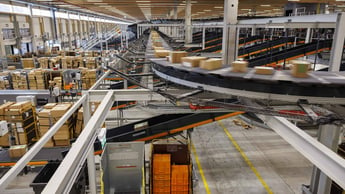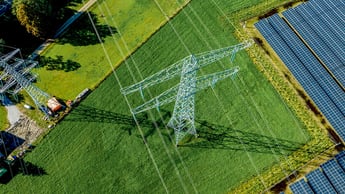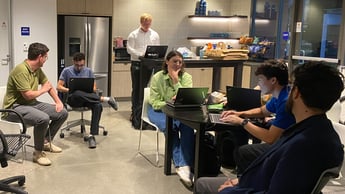Successful solutions: keep the user involved
In any project we do, we focus on keeping the user involved – talk, understand their challenges, agree upon the requirements for success, and make sure they remain in charge. After all, what value does a solution bring if the users don’t believe in it.
Let’s have a look at an example, a project we did with AMF: the Sustainable Oven Service (SOS).
Successful solutions: keep the user involved
AMF produces, among others, huge industrial ovens for bakeries (over 60 meters). These are used for various purposes, such as baking large amounts of hamburger buns or pizzas. Since the ovens consume a lot of energy, which is both expensive and bad for the environment, AMF asked us to come up with a smart solution to reduce gas consumption.
We started this project by understanding the challenges of our customers’ customers: the users of the ovens. We did this by making a complete picture of the oven and its environment, looking at three aspects:
- Theory (baking processes, products, energy consumption, etc.)
- People (go to the bakeries, see how the oven is used, and try to capture the expertise)
- Data (look at available and required sensors, collect all data)
Keep the user in the loop
Then we used our standardized way of working to make the ovens smart: keep the user in the loop. This way of working consists of 4 phases, where we aim to gradually build trust with the user while introducing our solution. Start small, and work toward full automation:
1. Analyze the current way of working by collecting data and monitoring actions
2. Assist the user by giving advice on the knowledge we collected
3. Improve by looking at data. Spot opportunities, advice the users.
4. Implement advice automatically. Industrialize our solution, so that the user only has to act as a supervisor in the process.
This is how we eventually came up with the Sustainable Oven Service. With this solution, the baker is provided with automatically generated recommendations based on usage patterns, expert knowledge, and sensor data. The baker can then decide to act and for example adjust oven settings, in order to achieve the optimal balance between costs, quality, and sustainability. A lot of technology is involved, but most important is that the baker is in charge and involved in every step, and is only assisted by our solution.
Results
This led to the fact that our predefined goals and requirements were reached within 6 months:
- 58% reduced idle time (waste reduction)
- 7.5% increased efficiency
- 22% reduced gas consumption (equal to the yearly consumption of 17 households)






